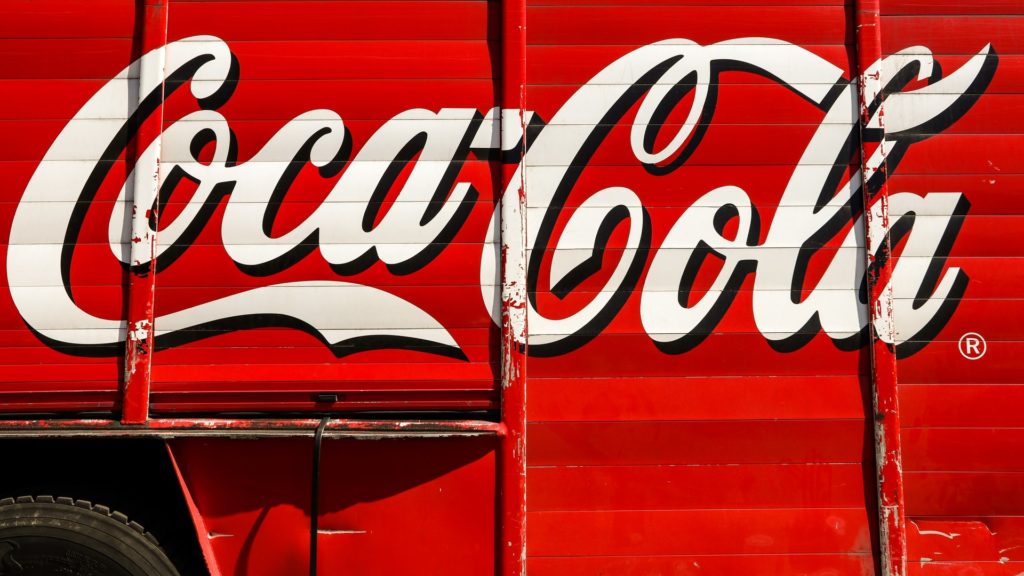TL;DR: hell yes they are. Plant-plastic is not “green” or friendly to the environment in any way. (It’s also not vegan.)
The iconic American brand Coca-Cola–historically no friend to the environment or to consumers in foreign markets–just announced the first plant-based plastic bottle. Coca-Cola, the world’s leading producer of plastic waste, generating more than 2.9 tons of plastic waste per year, has recently decided to go green–by making plant-plastic.
I came across this article on the LinkedIn feed for Vegan Business News and immediately questioned whether this development is vegan (it’s not), and whether this development is merely green-washing, roughly defined as the practice of making something look very eco-friendly and environmentally conscious for the purpose of cultivating consumer good-will (it is). Green-washing is also called eco-washing, or referred to as trying to add a “green halo” to a product to make consumers think it is good for the plant or the environment. The more I thought about it, the more annoyed I got.
My initial comment: “So…we’re going to continue to have microplastics pollution and regular plastic pollution, just now it will also be made from plants? I don’t buy it. Why not use glass or aluminum, both of which are much more easily recycled and have a longer useful life? This is greenwashing, plain and simple simple. #greenwashing #notVegan #NotAVeganBusiness“
One response I received claimed: “because the glass and can solutions are not clean either and the costs will not easily transfer to consumers. compostable would do…we are heading in that direction.” I’m not going to name the author of that comment, since he clearly had not read the article–this magical new plant-plastic will NOT be compostable.
Plant-Plastic is Still Plastic
Let’s start with the obvious: the plant-based plastic IS STILL PLASTIC.
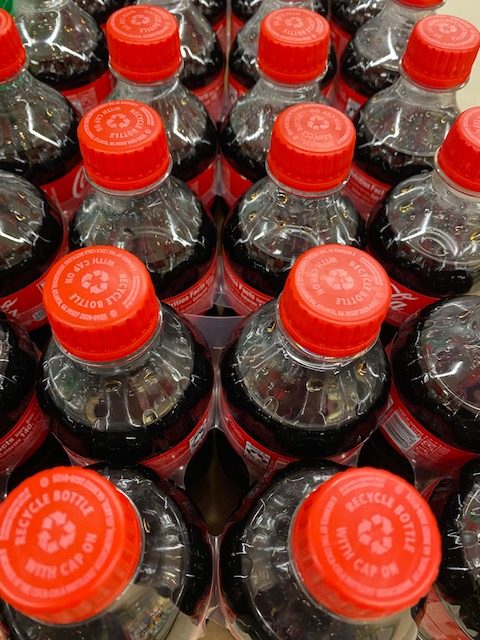
Personally, I do not see how the solution to the single-use plastic problem is to make more single-use plastic. According to the article linked above, the plant-based plastic called bPET “is identical in molecular structure to virgin fossil-based PET.” This means that regardless of the ingredients, plastic is plastic. A spokesperson for Coca-Cola explained that the plant-plastic “can be mixed with rPET and virgin oil-based materials interchangeably including in the recycle stream.” These plant-plastic bottles will not be reusable or compostable. Coca-Cola is planning to increase its own capacity to recycle plastic (more on why that’s problematic below), but it’s still plastic.
Plastic is a “forever” product.
Since the plant-plastic is identical to the plastic we already have, with the same molecular structure, plant-plastic will pose all of the same problems as plastic. Plastic is not biodegradable and cannot be composted. (The corn-based “compostable plastic” forks and other single-use items you have seen? NOT compostable in municipal compost, where that service even exists. If you’ve experimented with composting these in your backyard composter, I’d love to hear how long it took them to fully break down. Oh, and some of them break down into micro-plastics!) The majority of plastic is not recycled, even if you put it into your recycling bin, assuming you even have recycling where you live. (People like to cite the statistic that “74% of Americans have access to recycling” but they always leave out the fact that data is based on access to recycle glass and aluminum–not plastic.) I’ve talked about this in prior posts, such as this one. In the past much of our plastic waste was shipped to China for recycling, but China started rejecting shipments before the COVID-19 pandemic.
Plastic is the wrong kind of “forever.”
Aluminum (made from metal minerals) and glass (made from silica, limestone, and soda ash) are “forever renewable.” You can basically reuse or recycle your aluminum beverage can or your glass beverage bottle until the end of time. (More on that when we talk alternatives.) Unlike aluminum and glass, plastic cannot be endlessly recycled. The article about Coca-Colas plant-plastic admits this: “While the majority of the company’s plastic packaging material will come from recycled content, some ‘virgin’ material will apparently still be needed to maintain packaging quality.” In other words, to continue using this plant-plastic, they will have to continue to produce more plastic! More single-use plastic is simply a bad idea.
Grow Plants to Eat, Not to Plastic!
I didn’t do a deep-dive into land use for this post, but if you’d like to, please drop a comment. A basic fact of planet Earth is that we have limited arable land, meaning land that can grow plants on it. Quite a bit of land is unavailable to grow plants for human use–deserts, swamps, wetlands, permafrost, etc.–so we should probably be thoughtful about how we choose to use the land that we do have available to us. I’m not going to argue we are doing a good job with this, but in a world where we’re already mowing down rainforest to start cattle ranches, shouldn’t we be focused on using our arable land for crops to feed humans and animals? (I’m not debating whether to go vegetarian or vegan here, that’s a different convo.) Doesn’t it seem like a bad idea to set aside land to grow plants to turn into plastic? Especially for the world’s largest producer of plastic waste (plastic that is not recycled)? It does to me, especially when climate change is threatening to take away some of the land we currently use, whether due to rising sea levels, change in the growing season conditions, or increase in severe weather events (including droughts and floods).
Plant-Plastic Will Likely Get Incinerated
According to the article cited above, Coca-Cola plant to introduce the plant-plastic in Europe. Unlike the United States, where few things are diverted for reuse or recycling and the remainder go to landfills, a large chunk of Europe produces less waste to start with and then deals with the rest using a trash incinerator. (Read about those here.) Currently many of them are “trash to energy” incinerators with environmental controls for many of the most dangerous pollutants and for particulate matter. That’s where single use plastic goes too—and “Burning plastic in a climate emergency, that’s insane,” said Georgia Elliott-Smith, an environmental engineer, according to that article. Even the most environmentally-friendly of these trash incinerators are falling out of favor in the age of climate change, as they produce CO2 (which we all know is a bad idea). As much as Coca-Cola claims they are going to collect and re-use this plant-plastic, in reality they have little impact on what consumers choose to do with empty plant-plastic bottles. The UK burns more than it recycles (across the board); why should we expect the rest of Europe to suddenly get on board with recycling for plant-plastic? We should not. Incinerated plant-plastic will contribute to CO2 production, which is the opposite of the eco-friendly label Coca-Cola has put on their plant-plastic. This, my friends, is greenwashing.
We Have The Alternatives
Glass
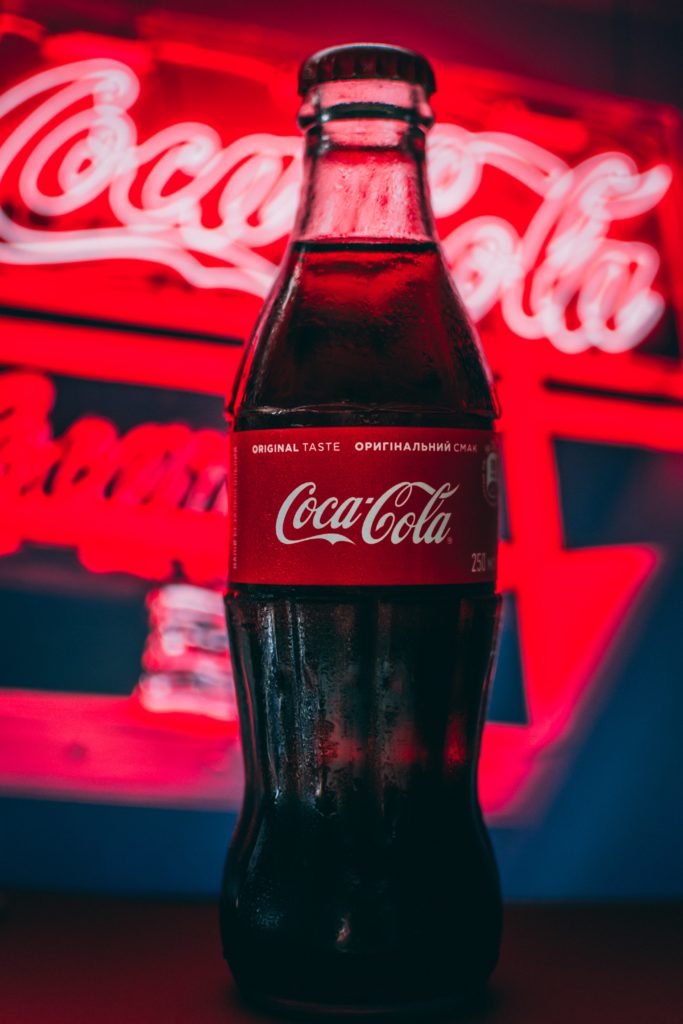
Glass is endlessly recyclable. One article describes the state of glass recycling as sadly broken, and notes: “glass can be recycled endlessly by crushing, blending, and melting it together with sand and other starting materials.” The components are basically sand (silica), limestone, and soda ash. The article notes that about one-third of the glass in the U.S. is actually recycled (versus putting it in a recycling bin and then it goes to a landfill). This is a problem that is potentially fix-able if we–or Coca-Cola–can devote resources to expanding glass reuse or recycling. (The same isn’t true of plastic, which is not endlessly recyclable.)
While glass does have the disadvantage of being heavier than plastic, which has an impact on shipping costs (and associated fossil fuel usage), large companies like Coca-Cola already use a distribution system where products are bottled in multiple locations with an eye towards reducing the shipping distance. (Let’s not forget that beer, wine, and spirits are almost exclusively bottled in glass in the United States, with some notable exceptions for aluminum cans, and continue to be shipped from coast to coast.) Coca-Cola continues to distribute products in glass bottles in many non-U.S. countries. Have you ever bought Coca-Cola imported from Mexico? Always in a glass bottle. Coca-Cola has other brands in its portfolio that are bottled in glass (not plastic) so this isn’t a stretch at all!
Coca-Cola could even lead the pack by returning to returnable–not recyclable–bottles. You might not remember those, but Coca-Cola vending machines used to dispense heavy glass bottles. (In the 80s and 90s we had one in the basement of the church where my Girl Scout troop met.) These were returned, sanitized, and refilled. As a kid I remember getting all of our family’s sodas at a place called Towne Club, a private-label warehouse-type brand, where we returned the bottles not for a deposit but to be reused. In Portland, several companies dispense their beer or cider into refillable growlers, and a few are part of a glass bottle return program. (Those bottles are washed and sanitized, then refilled for retail sale.) This isn’t a radical concept.
Aluminum
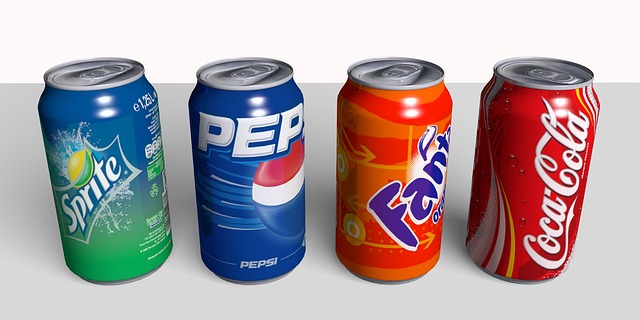
You know about aluminum, right? The stuff all Coca-Cola cans–and even some bottles!–are made of? Aluminum is the most valuable thing in your recycling bin. (That article has a great summary of how reusable aluminum is, an how much energy is conserved by recycling it instead of making it from scratch.) Like glass, aluminum is almost infinitely recyclable. Nearly 75% of all aluminum ever made is still in use today. You cannot say the same for plastic, the vast majority of which is in landfills (or perhaps the ocean, or burned in European incinerators).
How valuable is aluminum? When I worked in the Texas legislature and a bottle deposit came up for a vote, the reason it always failed was aluminum. Why? Independent recycling centers rely on the income from aluminum recycling–the buy-back price more than covers the operations to collect and recycle it–to fund their operations and help recycle cardboard, paper, #1 and #2 plastic, and glass.
Coca-Cola already makes aluminum bottles, which are lighter than glass ones and not much heavier (if at all) than plastic ones. Again, this is not a new or radical idea! If they took a serious interest in recycling aluminum on a world-wide basis, they could easily use more aluminum bottles and maybe even use less plastic to make bottles. That would make a bigger impact than inventing a fake “eco-friendly” plant-plastic.
(Steel might be an option too, though I don’t know whether Coca-Cola would react with steel. Gnarly Sports Nutrition recently started a shift away from the plastic tubs most nutrition companies use, in favor of steel. According to Gnarly Nutrition, steel has the highest recycling rate of any material at 71% while plastic is at 8%. Their packaging is tin-coated. The switch from plastic to steel increased the price of the tub by 80 cents.)
Creativity: Concentrating or Dry-Shipping Beverages
With just the tiniest bit of creativity, Coca-Cola could shift many of its brands out of plastic OR reduce the amount of plastic they use instead of using more and making it from plants to look “green.” One option would be to only ship concentrated beverages. They already do this, shipping containers of Coca-Cola syrup to restaurants that use a system to add carbonated water to the syrup to make your beverage–all fast food restaurants, and nearly all other restaurants, obtain Coca-Cola this way. If you’ve got a Soda Stream or similar carbonation device, you can buy concentrated soda syrups to flavor your carbonated water, essentially making your own soda by just adding (carbonated) water. This solution has already been implemented by liquid laundry soap and fabric softener manufacturers, many of whom now sell concentrated formulas that require smaller packages and therefore last plastic. (Skip these and go plastic-free for your laundry though.) Again, not a novel or crazy idea–and Coca-Cola is already doing it on a small-scale.
Another option would be to create formulas that can be shipped dry. For example, Coca-Cola owns many brands that make tea. Historically, tea was shipped dry (either in bulk or in individual tea bags). There’s no real reason why Coca-Cola couldn’t ship tea brands as dry tea, and it would probably require fewer additives (i.e. colorants to make the product’s color appealing on the shelf, stabilizers so it can wait in a package before you drink it, etc.). Given the amount of money they must have thrown into making plant-plastic, surely they could redirect a few bucks to making dry mixes for their non-tea products as well. Coca-Cola classic only has like six ingredients, and 90% of it is carbonated water! These reformulated dry products could be shipped in individual compostable/recyclable paper packets (like sugar) or in bulk packing like a tin, steel tub, or a glass jar, avoiding plastic altogether.
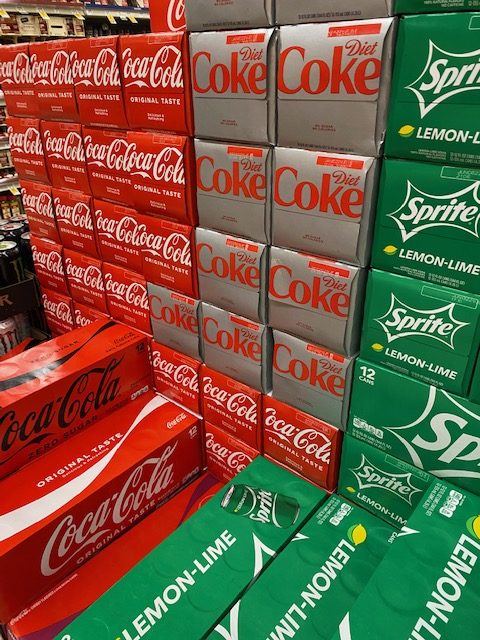
Conclusion: “Plant-Based Plastic” IS Totally Greenwashing
Plant-Based News recently wrote an article explaining that Coca-Cola is vegan except when it isn’t. A similar post at LiveKindly agrees, and notes that Coca-Cola is also an environmental disaster for using so much plastic. (LiveKindly notes that Coca-Cola has made a public commitment to use 50% recycled materials by 2030, but as the article that led to this blog post indicates, that’s because they’re planning to use more plastic!) There’s nothing particularly vegan about plant-based plastic (unless you intend to eat the bottle, which I’m going to assume Coca-Cola does not recommend).
Plant-based plastic is not compostable and has the same molecular structure as regular plastic. This means a single-use plant-plastic bottle creates the same problem as an oil-based plastic bottle.
There is nothing eco-friendly or “green” about creating more single-use plastic. The obvious alternatives, aluminum and glass, are both already in use and endlessly recyclable. With creativity, Coca-Cola could ship products that are more concentrated (they do for restaurants) or dry, further reducing plastic use. Instead, they have opted to invest in plant-plastic and using arable land to grow plants to make plastic instead of food.
Consumers should not be fooled by this blatant attempt to reclassify plastic as environmentally friendly, “green,” or any other version of good for planet Earth.
